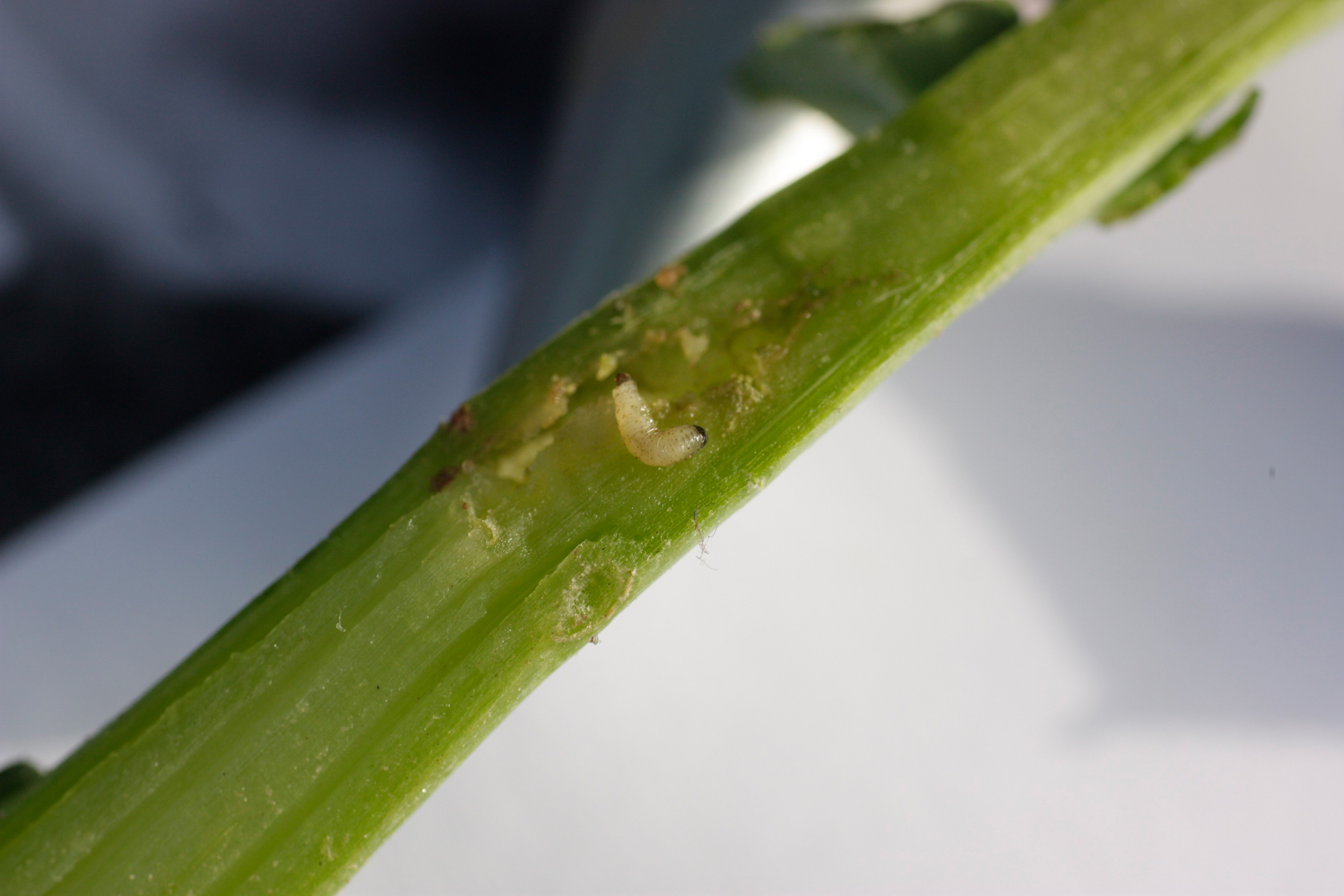The institute published current data from a trial it conducted in 11 locations in France using 18 rapeseed varieties from different breeders. The trial examined the larval infestation of the pest cabbage-stem flea beetle. The result: The KWS winter rapeseed variety Feliciano KWS had considerably fewer larvae in its stems than all of the other 18 varieties tested. The statistical analyses demonstrated the variety had a significant influence on the amount of larvae. “The cabbage-stem flea beetle seems to prefer certain varieties while it avoids others,” explains Anne-Kathrin Schulz, international portfolio manager at KWS. “We’re delighted the study showed Feliciano KWS to perform exceptionally well in comparison with other varieties and therefore represents a class of its own when it comes to combating the cabbage-stem flea beetle.”
Up to now, the battle against the cabbage-stem flea beetle and its larvae has been fought with insecticides. When certain damage thresholds have been reached, steps must be taken: three larvae per plant in weak stands and five larvae per plant in strong stands. “On average, Feliciano KWS had not reached the damage threshold at all, and in weak stands the variety had just barely reached it,” Schulz reports. “On the basis of damage thresholds, this means an insecticide treatment can be eliminated with Feliciano KWS. That constitutes an important contribution to a more sustainable approach to agriculture as well as an interesting option for farmers from a cost perspective.”
Increasing infestation in Europe
The damage caused to rapeseed stands by the cabbage-stem flea beetle and its larvae is considerable. The larvae feed on the stems of the plants in spring. The plants then branch less vigorously and have a reduced potential yield. The adult population, on the other hand, begins consuming the cotyledons of rapeseed plants as early as in the fall, which can sometimes also result in total crop failure for an entire acreage. Infestation levels fluctuate from year to year, however with the ban on neonicotinoid seed treatments in EU countries, the damage caused by the cabbage-stem flea beetle is expected to likely increase in the future. The regions primarily affected in Europe include France and England as well as eastern and southeastern Europe. “Feliciano KWS is already being grown in France, and initial sales have also been made in Poland, Czech Republic and Slovakia as well as in southeastern Europe,” Schulz says. “England will probably follow next year. That means farmers in the most heavily impacted regions can use Feliciano KWS.”
Feliciano KWS: The variety with new resistance gene against Phoma
In addition to its limited susceptibility to the cabbage-stem flea beetle, Feliciano KWS also has a new source of resistance (RlmS) to the pathogenic fungus Phoma. Phoma is also widespread and an infestation can lead to considerable yield losses in rapeseed cultivation. Many resistance genes that have been well known and used for years no longer offer sufficient protection. In contrast, the new genetics offers the greatest protection against new Phoma strains. Schultz explains: “Phoma resistance was specifically bred into Feliciano KWS using standard breeding methods. The variety’s limited susceptibility to the cabbage-stem flea beetle adds to its value as the variety is now very resistant to two of the primary pests that affect rapeseed plants.”
Further information on the study by Terres Inovia:
www.terresinovia.fr


